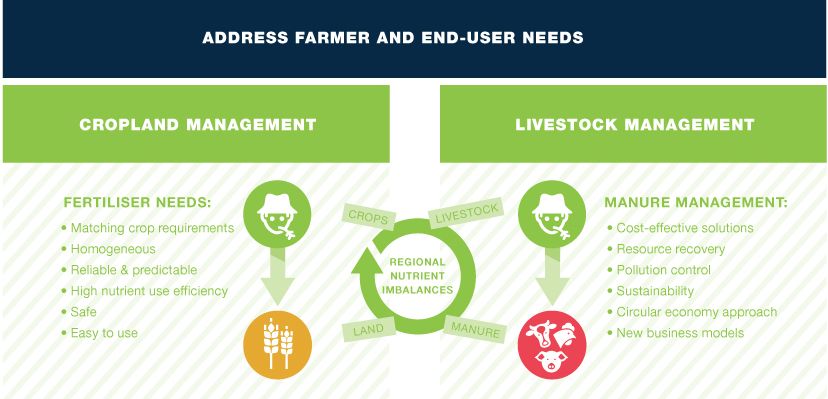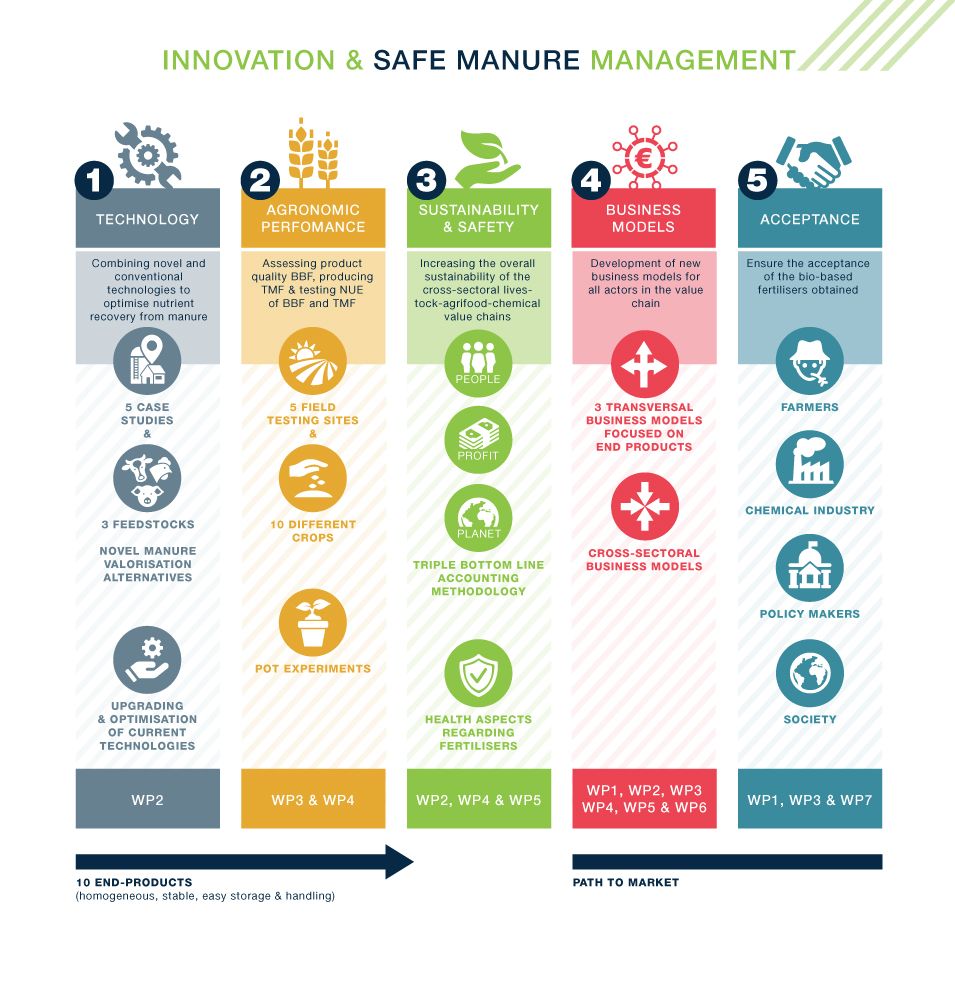
 What's at Stake ?
What's at Stake ?The current dependency of EU agriculture on fossil-based mineral fertilisers can only be regarded as an extremely serious threat to future food security. Not only does the present linear economy rely on scarce resources, such as natural gas, limited phosphate reserves and fresh water for its agricultural production, the import of feed from outside the EU and the production of fertilisers are causing an imbalance in many EU regions. There is therefore now a need to reutilise valuable components from all types of waste streams in order to enable a move towards a circular economy.
A number of studies have already identified the three principal waste streams that are the most promising in terms of their potential for valorisation into BBF:
Of these, manure is by far the largest nutrient-rich residual biomass stream, representing more than 700f the nutrients from these three waste streams. The EU livestock sector is the largest in the world, and as such is one of the heaviest utilisers and suppliers of nutrients.
On the one hand, the livestock sector needs to address the regional problems that are associated with nutrient excesses (pollution control, odour nuisance, etc.), and needs do so at affordable costs. On the other hand, the agricultural sector, that currently relies on external sources of mineral nutrients for improved plant production, requires novel fertilising products that

Current manure management practices are facing a certain number of challenges:
